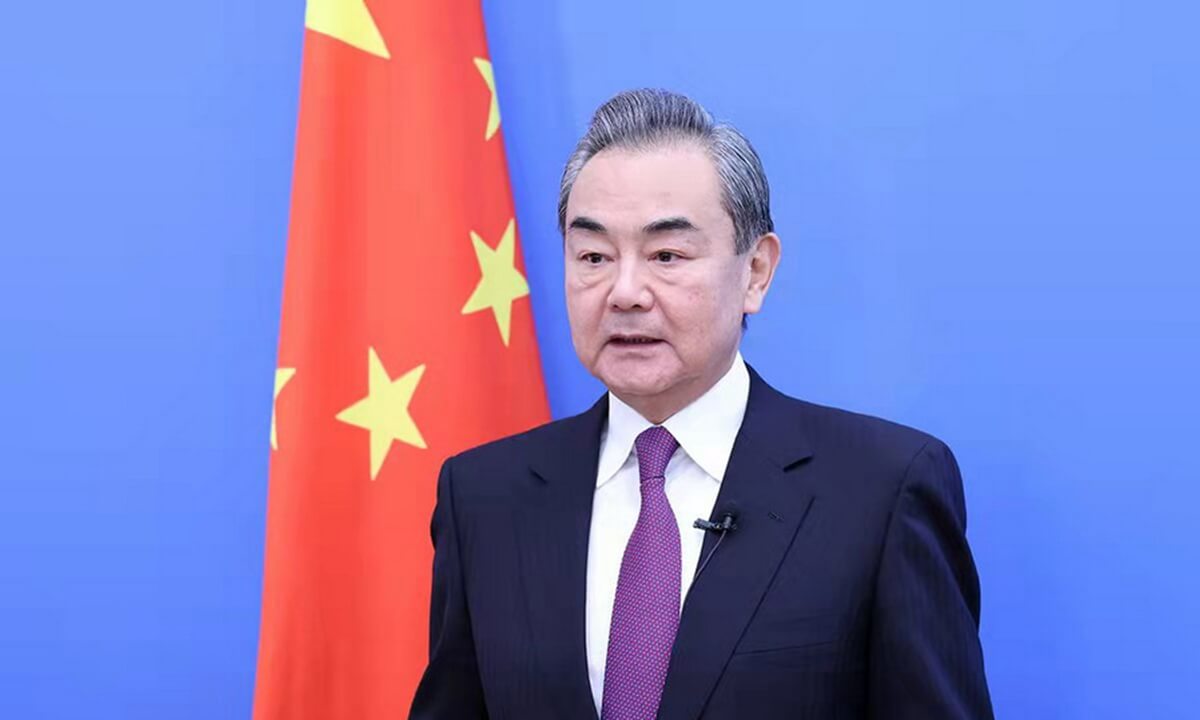In a leaked draft communiqué of a five-year plan sent by China to ten Pacific island nations ahead of Foreign Minister (FM) Wang Yi’s tour of the region, the Asian giant lays out a vision of new policing and security deals.
The document, titled ‘China-Pacific Island Countries Common Development Vision,’ has been seen by Reuters and focuses on “strengthening exchanges and cooperation in the fields of traditional and non-traditional security.”
To this end, it states, “China will hold intermediate and high-level police training for Pacific Island Countries through bilateral and multilateral means.” Furthermore, it envisages a ministerial dialogue on law enforcement capacity and police cooperation later this year, wherein China would provide forensic laboratories.
Unlike the US and Australia seeing the Pacific Islands as their "backyard," China's diplomatic ties are based on mutual respect and common development which will be further validated by the visit of State Councilor & FM Wang Yi to the region. #GTGraphic pic.twitter.com/fCLVgIKd5L
— libijian李碧建 (@libijian2) May 26, 2022
The draft also touches on cooperation on data networks, cyber security, climate change, health, and an unspecified smart customs system. Simultaneously, it urges the countries to take a “balanced approach” to national security, technological progress, and economic development.
In this respect, it urges the Pacific islands to “firmly abide” by the ‘One China’ policy and offers the promise of creating a free trade area.
Furthermore, the draft proposes a deal to allow Chinese tech giant Huawei to enter the Pacific market and build a 5G network. Huawei has been banned by several Western countries, including the United States (US), the United Kingdom, Canada, and Australia, over security concerns.
Furthermore, China plans to incentivise Chinese companies to invest in the region and send language consultants, teachers, and volunteers to boost interpersonal exchanges.
The leaked document comes as Wang prepares to host a foreign ministers’ summit in Fiji on May 30. He will visit eight Pacific island nations—the Solomon Islands, Kiribati, Samoa, Fiji, Tonga, Vanuatu, East Timor, and Papua New Guinea—between May 26 and June 4. He will also hold virtual meetings with the Cook Islands, Niue, and the Federated States of Micronesia (FSM).
In fact, he will touch down in the Solomon Islands today, which recently signed a security deal with China that could see deploying naval warships to the region as well as building a military base and station armed forces in the country, although Solomon Islands Prime Minister Manasseh Sogavare has insisted otherwise.
The US, Australia, and New Zealand have criticised the deal, saying it threatens regional security and could give Beijing’s military access to the region.
The latest document has invited a stern response from some countries in the region. For example, FSM President David Panuelo said China’s plan must be rejected because it could instigate a new ‘Cold War’ between China and the West.
Panuelo warned neighbouring countries that China is trying to “tie the whole of our economies and societies to them,” which he said could undermine their control over their own communications infrastructure, ocean territory, and resources. He also spoke of the threat posed by the ‘smart customs system,’ which he said would mass surveillance and biodata collection.
The FSM has a defence agreement with the US and an economic cooperation agreement with China.
Like Panuelo, US State Department spokesperson Ned Price said Washington is “concerned that these reported agreements may be negotiated in a rushed, non-transparent process.”
“We don’t believe that importing security forces from the PRC [People’s Republic of China] and their methods will help any Pacific Island country,” he said, adding, “Doing so can only seek to fuel regional and international tension and increase concerns over Beijing’s expansion of its internal apparatus to the Pacific.”
Price reiterated that the US respects the Pacific countries’ ability to make sovereign decisions in the interest of the people. But he also noted China offering “shadowy, vague deals with little transparency or regional consultation,” which are a cause of concern in the US and across the region.
However, when questioned about the document, the Chinese foreign ministry spokesperson Wang Wenbin said he was “unaware” of it, noting that China’s friendship and partnership with South Pacific countries is based on “mutual respect, equality, and mutual benefit.”
Wang added, “I do not agree at all with the argument that cooperation between China and the South Pacific island countries will trigger a new Cold War.”
Foreign Minister Penny Wong tells the Pacific Islands Forum that Australia has "neglected" its responsibility to act on climate change and that the new government will stand "shoulder to shoulder" with the Pacific on the issue 1/ https://t.co/TTNwD8g5UC
— Stephen Dziedzic (@stephendziedzic) May 26, 2022
On the FM’s Pacific visit, the spokesperson said it would “consolidate political mutual trust, expand practical cooperation, and deepen people-to-people bond so as to build an even closer community with a shared future for China and Pacific Island countries.”
Against this backdrop, Australia’s new foreign minister, Penny Wong, arrived in Fiji today for an impromptu trip, during which she stressed that Australia is “a partner that doesn’t come with strings attached” and won’t “impose unsustainable financial burdens.”

